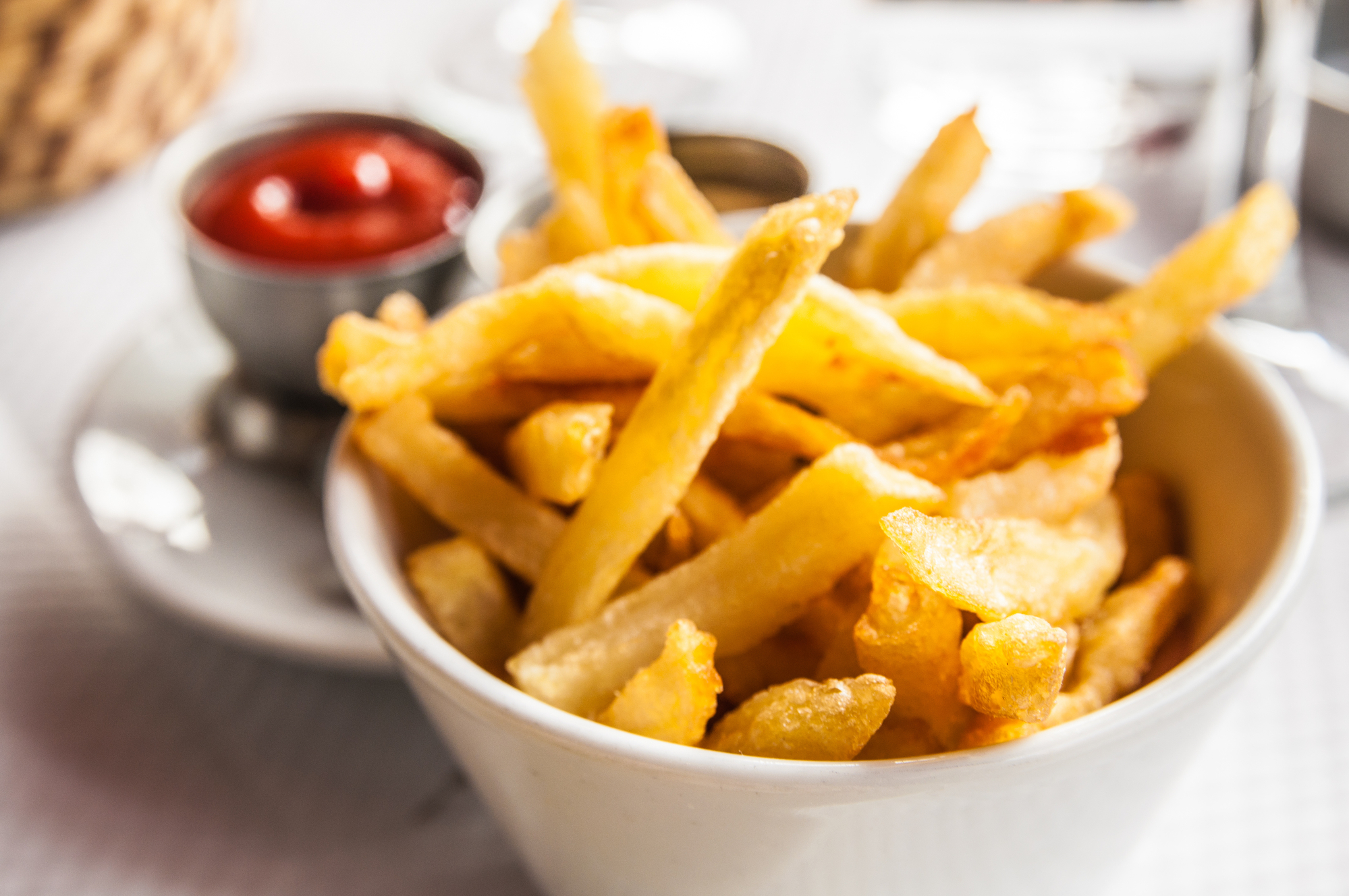Top Inflammatory Foods
If you wonder why you can not deflate that spare tire hanging around your tummy with the help of diets and gym, it is probably because of a chronic, low-grade inflammation caused by certain foods you eat.
Inflammation caused by food differs from that caused by injuries or illnesses. When your body’s alarm system turns on to let the immune system fight illnesses, the immune system aims to disarm the alarm as quickly as possible. But when it comes to chronic, low-grade inflammation caused by bad diet, the response of your body turns into incessant one. Inflammatory foods trigger your body’s alarm system every day, so your immune system has to defeat the body 24 hours a day, sabotaging all the weight-loss measures you take. In other words, it is exactly chronic, low-grade inflammation that becomes a reason for weight gain. What is more, chronic inflammation can cause drowsiness, skin problems, digestive issues, and some diseases, including obesity, diabetes, and even cancer.
Healthy eating is one of the key aspects to consider when you want to take care of your body, your health, and your beauty. Paying attention to foods you include in your diet, knowing about the effects they have on your health and avoiding foods that turn on your body’s alarm system, will help you to reach your body goals and to contribute to your overall health. So now let us see what are the top 10 inflammatory foods you better to kick out of your diet.
1. Sugar

Photo by ©samwordley@gmail.com/ Depositphotos.com
Probably, you know that sugar is not good for your health. Although most of us know that sugar in all its forms has to be limited, we continue to include it in our diets in the form of soft drinks, snack bars, candy, baked sweets, coffee drinks, and other food temptations. What is more, there are some products that contain hidden sugar, such as salad dressings, bread, alcohol and many other. That is why it is very important to read food’s labels before buying some product.
According to a review in the Journal of Endocrinology, glucose-containing sugar from the food we eat is responsible for increasing the levels of pro-inflammatory messengers called cytokines. What is more, sugar is responsible for the weakening of the immune system because it suppresses the effectiveness of our white blood cells’ germ-killing ability. In other words, eating a lot of products high in sugar increases the risks of infectious diseases. But there is a solution.
Most of the products that are high in sugar have a high glycemic index which spike and crash blood sugar. It means that swapping such foods for glycemic-low alternatives can partly resolve the problem. So if you feel that sweet temptation, try to include more healthy fats, protein, and fiber to your diet. Such foods will help your body to lower the levels of the inflammatory biomarker C-reactive protein, while foods with a high glycemic index will increase them.
2. Trans Fat
Trans fats do not naturally occur in foods and that is why our bodies have no proper mechanisms to break them down. So when a manmade partially hydrogenated oils get to the body, it responses with inflammation because it considers trans fats as foreign, unknown objects. One more reason for inflammation caused by eating trans fats is that they can actually damage the cells in the lining of blood vessels.
The bad news is that according to the FDA’s guidelines, products that contain less than 0.5 grams of trans fats can be sold as 0 trans fats. The good news is that reading food labels can help you to find out if there are some trans fats in this or that product. Avoid buying products containing partially hydrogenated oils, such as margarine, baked goods like doughnuts, cookies, and muffins, and non-dairy coffee creamers.
3. Vegetable-Oil
After harmful effects of trans fats revealed, manufacturers decided to swap them for vegetable oils such as soy, corn, sunflower, safflower, or palm oil. But the truth is that such products are not much better as they are high in inflammatory omega-6 fats and low in the anti-inflammatory fat, omega-3. Although our bodies need omega-6 fats to function properly, omega-6 rich diet causes imbalance and inflammation in the body. A healthy omega-6 to omega-3 ratio is 1:1, but most Americans eat so many vegetable-oil-laden products that an average ratio turned into 20:1, where 20 is for inflammatory fatty acids and 1 for anti-inflammatory ones.
4. Fried Foods

Photo by ©ilolab/ Depositphotos.com
Besides fried foods such as french fries, fried chicken, fish sticks and many others affect omega-6 to omega-3 balance, they also contain high levels of inflammatory advanced glycation end products (AGEs). AGEs can be found in foods that were cooked at high temperatures, pasteurized, dried, smoked, fried, or grilled. In order to diminish AGEs markers of inflammation in the body, it is important to limit fried and processed foods in your diet.
5. Refined Flour
Americans love foods such as pizza, crackers, breakfast cereals, pasta and white bread. That is why more than a half of us have some excess weight or obese. The thing is that refined flour, one of the main ingredients of these foods, has been stripped of its slow-digesting fiber and nutrients, so the body breaks it down quickly. As the result, your blood sugar spikes and, what is more important, your insulin levels spike as well, becoming a reason for inflammation.
6. Dairy
Although dairy products are usually seen as healthy, most of them, especially in high amounts, can actually cause chronic, low-grade inflammation. Here are at least three reasons why dairy products have to be avoided:
- Dairy is a source of inflammation-inducing saturated fats.
- While a little of Greek yogurt can actually help your body to decrease inflammation, most of the dairy products decrease levels of our good, inflammatory-reducing gut bacteria.
- Dairy is a well-known allergen and any allergy triggers inflammatory reactions through the release of histamines.
So if you have difficulty in digesting milk or feel bloated after a slice of cheese, it will be wise to kick dairy products out of your diet.
7. Artificial Sweeteners
Artificial sweeteners are popular among those who avoid sugar or want to lose some weight. Nevertheless, according to a study published in Nature in 2014, consumption of artificial sweeteners enhances the risk of glucose intolerance, increasing levels of bad gut bacteria associated with type 2 diabetes and decreasing levels of the good bacteria known to help release anti-inflammatory compounds.
8. Artificial Additives

Photo by ©photkas/ Depositphotos.com
Artificial additives have something in common with trans fats: they do not naturally occur in foods and that is why our bodies have no proper mechanisms to break them down. That is why ingredients like artificial coloring are associated with a number of health issues, including hormonal imbalance, hyperactivity in children, and tumor production. What is more, our bodies consider such synthetic colorants as enemies and activates the inflammatory cascade to fight them. Some additives such as emulsifying agents can disrupt the bacterial makeup of the gut and become a reason for inflammation.
9. Meat
It will be hard to find more pro-inflammatory food on earth than processed meat. Even unprocessed meat is high in saturated fats responsible for inflammation, and when it comes to processed meats such as sausages, hot-dogs, salami and others, add high levels of advanced glycation end products (AGEs) to get hundred-percent inflammation response. What is more, most of the processed meats are injected with a slurry of preservatives, colorings, and artificial flavorings. All these additives are registered by the body as enemies it needs to fight.
Although unprocessed meats are always a better choice, note that conventional grain-fed meats are high in pro-inflammatory omega-6 and
are packed with antibiotics. What is worse, meat grilled at high temperatures becomes a source of inflammatory carcinogens.
The truth is that meat intakes have to be limited. You do not need eating meet more than two times a week. At least, try to swap it for fatty fish in order to provide your body with anti-inflammatory omega-3 acids.
10. Alcohol
It is ok if you drink a glass of wine or a glass of beer. Alcohol can actually lower levels of the inflammatory biomarker C-reactive protein and promote anti-inflammatory effect due to the presence of flavonoids found in wine and probiotics in beer. Just note that drinking a lot of alcohol will have the opposite effect. The thing is that the process of breaking down alcohol leads to the creation of toxic by-products associated with inflammation. What is more, these toxic by-products damage your liver and suppress your immune system.


